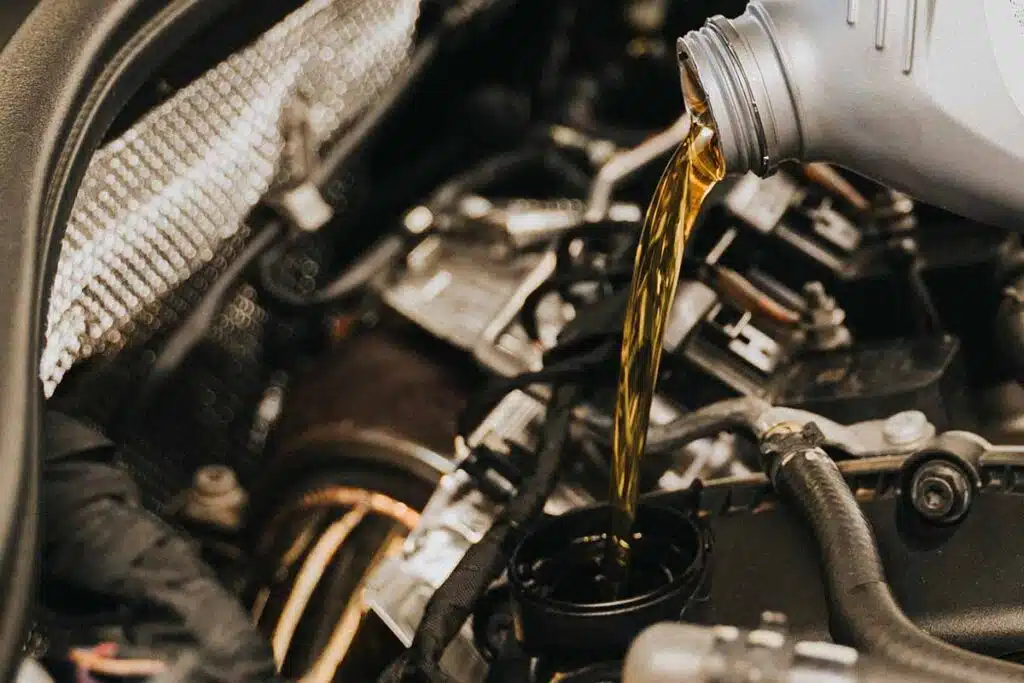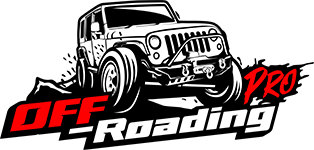Excessive noise — especially from the engine or transmission — is never a good sign. It is not only disconcerting but also a near-guaranteed indication of an underlying problem in your vehicle.
But what exactly does it mean when a car makes a whining noise when accelerating? Well, you are about to find out in this article.
Several things can cause that humming noise in your car to get louder with speed. They include faulty wheel bearings, worn suspension components, and a leaking air intake or exhaust system. Tread block patterns and transmission problems are also probable culprits, but they are further down the list.
Here are the most common reasons behind humming noises in cars that get louder with speed:
- Worn or damaged bearings
- Bad ball joints
- Cracked serpentine belt
- Scalloping or tire cupping
- Faulty CV joint
- Lack of or incorrect engine oil
- Tires with aggressive tread designs
- Issues with the engine
- Transmission problems
- Incorrect cylinder compression
A rule of thumb in figuring out what is causing the humming noise is to listen closely to where it is emanating from. Once you have determined the location of the sound, it would be easier to narrow down which component or system is at fault.
I am sure mechanically savvy car owners already know how to handle this situation. But for nouveau riders, it would do you well to stick around and continue reading this guide.
Why Do I Hear Humming While Driving?

1. Worn or Damaged Bearings
The most common cause of bass-like humming sounds is faulty bearings. Usually, they become damaged due to driving on potholes, speed bumps, and other on-road obstructions.
But even without impact damage, bearings are still bound to deteriorate. After all, these components are subject to enormous pressure as they connect the wheel and axle and enable its smooth rotation.
However, wheel bearings are not the only things that should come to mind when humming sounds become apparent (although they are the most likely culprit). Water pumps have bearings, too, that wear out or completely break down.
In most situations where the water pump fails, vibrations occur when driving slowly. The only time humming sounds are heard from the engine bay is while driving at higher speeds.
If you hear your car make a whining noise when accelerating, diagnose the problem and replace the affected components immediately. Never put it off or push the limits of the erring components.
Continuing to use damaged wheel bearings could potentially lead to free play within the wheel hub or the hub coming loose from its spindle — both of which are perilous.
Similarly, doing the same with a defective water pump bearing could result in overheating, cylinder-liner cavitation, or engine damage beyond repair.
2. Bad Ball Joints
A compromised ball joint is probably the 2nd most prevalent cause of humming noise in cars getting louder with speed. It is predominantly characterized by low-pitched humming that becomes noticeable when driving at 30—40 mph (48—64 mph).
Some of the main causes of its deterioration are clutch (view on Amazon) or gearbox problems, impurities and dirt buildup, and insufficient or low-quality lubrication (more on later).
3. Cracked Serpentine Belt
Friction caused by belt slippage (usually around the outer diameter of a pulley) is another probable reason your car is loud when accelerating. The sound is mostly caused by worn bearings, misaligned pulleys (view on Amazon), defective accessories, or incorrect belt tension. Sometimes, it could signify the belt nearing its end of life.
However, slippage is not all there is to it. Belts naturally dry up and crack due to heat exposure and age.
Whether or not damage occurs prematurely, the important thing to remember is to replace the drive belt immediately. Otherwise, you may experience full discharge of your car battery or complete power steering failure when you least expect it.
Some online sources may claim that there is no harm in tarrying with a drive belt replacement. However, this should never be the case.
If you continue to use a vehicle with a torn serpentine belt, the belt can snap or come off the pulleys. Additionally, belt-driven accessories like the alternator, water pump (view on Amazon), and A/C will be rendered inoperable.
4. Scalloping or Tire Cupping
Uneven tire wear is also known to cause humming sounds at high speeds. But because it is associated more with vibration than sound, the problem is often misdiagnosed as a faulty wheel bearing. This is a big misconception concerning scalloping, as it shares similar symptoms with the latter.
Both issues are accompanied by shuddering felt through the steering wheel and a loud humming noise from the car’s front end.
They can also trace back to front wheels (and sometimes rear ones) being incorrectly inflated or out of balance. Hence, the best way to tell the two apart is by visually inspecting the tire tread. Any indentations resembling dips or scallops would point to tire cupping as the cause.
5. Faulty CV Joint
The inner CV joints of your four-wheeler can become defective for several reasons. These points include aggressive or reckless driving habits, component age, and little to no lubrication (to name a few).
The location of these joints is another factor. They are placed at the ends of the drive shaft and constantly exposed to the elements.
On the controllable end, a car owner should stick to routine inspection and ensure that the CV joints and boots are in good condition and properly lubricated. Outside of these best practices, age and wear are to be expected and can only be rectified through part replacement.
Only CV boots (and not the actual joint) are repairable — meaning higher expenses will be inevitable in case of component damage. While this is unfortunate news, never hesitate to spend those hard-earned bucks when you can. Because without properly functioning CV joints, your vehicle will not be able to accelerate.
6. Lack of or Incorrect Engine Oil

While tapping or engine pinging are typically associated with low oil levels, the latter can also be why your car is making a whining noise when accelerating.
And when we talk about inadequate oil, we are not only pertaining to the oil reservoir. Several vehicle parts need lubrication, too, such as your differential (view on Amazon). And when this requirement is not satisfied, you can expect to hear those pesky humming noises from your vehicle.
In the case of your differential gear, you can check its oil levels via the filler port using your finger. Your owner’s manual contains the required levels and change intervals for your differential.
Follow these recommendations using the correct oil type and viscosity — and make sure you replace the filler port plug.
7. Tires With Aggressive Tread Designs
In certain instances, humming noises in cars getting louder with speed have nothing to do with a system fault or defective component.
Sometimes, the unusual sound is caused by your choice of tires. This is likely the case if you have just installed a new set, especially if that set is either off-road or winter tires.
It does not necessarily follow that humming noises are limited to these tire types. Your car making whining noises while accelerating (especially at speeds over 60 mph) has to do with your tires’ tread pattern.
Large tread block tires are bound to make noise when driving at highway speeds. It should not matter if you have winter or all-season tires so long as they have this specific tread pattern.
8. Issues With the Engine
Ill-fitted or low-quality engine components and leakages are some engine hiccups that could result in whining or humming noises while driving. They may not always bring about these symptoms. But the moment they do, an immediate resolution is required.
When the quality of engine components is sub-par, they tend not to be flush with other components they connect to. The resulting unevenness leads to gaps, enabling air to escape the closed system.
At idle, noises caused by air leaks are barely noticeable. However, humming noises in cars get louder with speed because driving accentuates the sound that would have been negligible if the vehicle were at a complete stop.
This would explain why engine humming is heard only when a car is in motion. The noise intensity would also vary, depending on the affected part and the severity of the air leakage.
9. Transmission Problems
Being responsible for delivering power to the ground, it is no surprise that car transmissions have a high proclivity for internal breakdown.
Disintegration naturally comes with age but can happen earlier than expected due to bad driving behaviors. Incorrect gear shifting and parking without the hand brake are behaviors that take a toll on your vehicle’s transmission.
Symptoms of transmission issues are not limited to humming noise in cars getting louder with speed. Illuminated CEL, burning smell, visible puddles, delayed shifting, and power loss are other telltale signs pointing to the same thing.
However, the scope and severity of transmission problems are vast. Humming noises, in particular, usually signify a defective bearing or damage to the planetary gears.
10. Incorrect Cylinder Compression
It is natural for vehicles to roar to life (literally) once you turn the ignition key. But if you notice a humming noise in your car getting louder with speed, you may have a problem with your cylinder compression.
While it can be difficult to spot this culprit early on, the good thing about it is that it does not come alone. Along with humming noises, you are likely to experience reduced performance, misfiring, or stalling (among others).
If you suspect your cylinder compression to be at fault, test it using a Lang Tools TU-30A Compression Tester Set (view on Amazon).
A defective catalytic converter and torque converter are also likely causes. However, I didn’t include them in the list as the noise they produce is described as more of a rumbling sound. Nonetheless, these components are worth inspecting if everything else in this section checks out.
Conclusion – Humming Noise in Car Getting Louder with Speed

In summary, here is a non-exhaustive list of the top causes behind whining or humming noises when accelerating:
- Worn or damaged bearings
- Bad ball joints
- Cracked serpentine belt
- Scalloping or tire cupping
- Faulty CV joint
- Lack of or incorrect engine oil
- Tires with aggressive tread designs
- Issues with the engine
- Transmission problems
- Incorrect cylinder compression
I always say that stringent upkeep and routine maintenance are the best ways to keep vehicle problems at bay. But in this scenario, conscientious driving habits play a big part too.
Not roughing up your four-wheeler goes a long way in keeping its tire-and-wheel assembly, suspension, HVAC, and engine systems healthy and in check.
Like all other vehicles, your car’s components are not impervious to wear and tear. Some parts are even bound to deteriorate sooner than others.
So to maintain that pleasant, noise-free riding experience, you should observe good driving habits. At the same time, keep to the religious upkeep of your car and its different systems.
Kris is an avid off-roader and outdoor enthusiast who loves to brave the elements and take on challenging terrain. He also enjoys sharing his passion and knowledge with others so that they, too, can appreciate the ride.
About Kris
